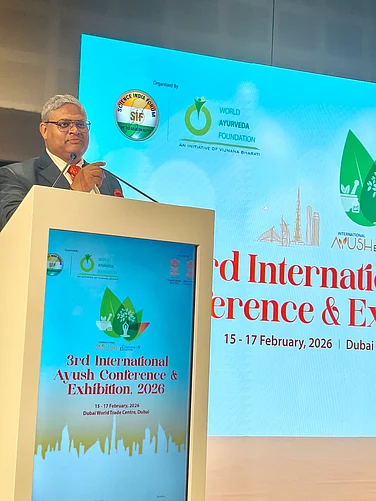Nigeria's oil and gas regulatory environment underwent a dramatic efficiency transformation during Simbi Wabote's tenure as Executive Secretary of the Nigerian Content Development and Monitoring Board (NCDMB). Under his leadership from 2016 to 2023, what had been a months-long bureaucratic ordeal became a streamlined process capable of delivering approvals in as little as 48 hours.
The transformation represented more than administrative reform — it fundamentally altered Nigeria's investment climate and positioned the country as a regional leader in regulatory efficiency. Average contracting cycles that once stretched 24-36 months were slashed to approximately 14 months, with NCDMB's portion often completed in days rather than weeks.
"We made our processes smart enough to ensure timely approvals and eliminate service failure," Simbi Wabote explained, describing the systematic overhaul that would earn NCDMB recognition as Nigeria's most efficient government agency.
The Bureaucratic Bottleneck Era
Prior to 2017, obtaining regulatory approvals in Nigeria's oil industry resembled navigating a labyrinthine bureaucracy designed to frustrate rather than facilitate. The contracting cycle for oil projects routinely stretched 2-4 years, with companies submitting hard-copy documents to NCDMB for sequential reviews across multiple departments with no guaranteed timelines.
Files would sit idle awaiting signatures or additional queries, causing months-long delays with no recourse for operators. The paper-based processes, complex forms, and entrenched "red tape" significantly delayed projects and frustrated investors who found themselves at the mercy of an unpredictable approval system.
"Processes had to be streamlined and, in some areas, automation introduced. Whatever had the appearance of a bottleneck or red tape was eliminated," Wabote noted, recognizing that the existing system was unsustainable for a country seeking to attract international investment.
The dysfunction extended beyond mere inconvenience. Extended approval cycles meant higher project overhead costs, delayed revenue generation, and reduced investor confidence in Nigeria's business environment. Companies had to build lengthy buffer periods into project timelines, paying standby rates while waiting for regulatory clearance.
Wabote's 15-Day Revolution
When Wabote assumed leadership of NCDMB in late 2016, he immediately recognized that regulatory efficiency would be central to Nigeria's competitiveness. Drawing from his experience managing Shell's global local content strategy, he understood that predictable, time-bound processes were essential for commercial success.
His solution was audacious in its simplicity: the "15-Day Rule" introduced in 2017. NCDMB pledged to respond to any formal approval request within 15 working days. If no response came within that timeframe, operators could proceed by notifying the Board — effectively eliminating the open-ended waiting periods that had paralyzed projects.
"Any request to the Board which was not responded to within 15-days should be taken as granted," Wabote directed, establishing a accountability mechanism that forced internal efficiency improvements.
The rule was first formalized in May 2017 via a Service Level Agreement (SLA) with Nigeria LNG (NLNG) — the first-ever agreement between a regulator and an industry player in Nigeria's oil and gas sector. Under the SLA, operators committed to timely submission of required documents, while NCDMB committed to specific turnaround times for each approval step.
The Digital Transformation
Wabote's approach combined procedural reforms with technological modernization. NCDMB launched full automation of its Nigerian Content processes, covering applications for expatriate quota approvals, NC plan approvals, equipment certifications, and compliance certificates.
Companies could now submit and track approvals via an online platform without physically visiting NCDMB offices. Internally, NCDMB re-engineered its workflow so that reviews previously conducted sequentially over weeks now happened concurrently through dedicated teams using standardized checklists.
Staff were retrained and roles realigned so decisions could be made at appropriate levels without unnecessary escalation. Wabote simplified reporting templates and forms, removing ambiguous requirements to "ensure timely information and eliminate service failure."
The transformation required significant change management. Some staff initially resisted the fast-paced regime, having grown accustomed to slower processes. Wabote addressed this through internal reorientation, emphasizing that NCDMB's role was to facilitate industry growth, not stifle it.
The 48-Hour Milestone
The system's capabilities were dramatically demonstrated during NLNG's Train 7 gas project. NCDMB completed its review of a major tender report in only 48 hours, whereas NLNG itself had spent approximately three months preparing that report.
NLNG's then-Managing Director Tony Attah publicly commended this "record time" turnaround, confirming NCDMB was "keeping to its commitment of reducing its approval cycle." The approval of the Nigerian Content Compliance Certificate for the Train 7 project represented a historic achievement in regulatory efficiency.
The interval from NCDMB's NC plan approval to issuance of Letter of Intent (LOI) for the Train 7 project was just 5 months, with the Board's commercial evaluation compliance certificate issued within 48 hours of submission. These timelines represented a quantum leap from the previous system where similar approvals could take many months.
Industry Response and Performance Metrics
The oil industry responded enthusiastically to the transformation. One major operator tracked every document submitted to NCDMB and found the Board met SLA deadlines 98% of the time — a performance level that eliminated the chronic delays that had previously plagued project development.
"Finger-pointing to [NCDMB] as the point of delay" virtually disappeared after SLA implementation, according to industry feedback. Operators no longer had to build extensive buffer periods into project timelines, translating to millions of dollars in cost savings through earlier project startup and avoidance of delay penalties.
The efficiency gains earned broader recognition. By 2022, NCDMB was rated the #1 most efficient Ministry/Agency in Nigeria's Ease of Doing Business rankings, rising from 27th place just a few years prior. The Board also received a Platinum rating from the Bureau of Public Service Reforms for its self-imposed process improvements.
Stakeholder Partnerships
The success of Wabote's approach stemmed partly from involving industry stakeholders in the reform process. Rather than imposing changes unilaterally, NCDMB worked with operators to develop realistic timelines and workflows.
The Oil Producers Trade Section (OPTS) — representing 28 major upstream companies including Shell, Chevron, and ExxonMobil — signed an SLA with NCDMB in May 2018. Paul McGrath, Managing Director of ExxonMobil Nigeria, "thanked the Executive Secretary for the wonderful initiatives introduced since assuming office" and noted that OPTS members had actively contributed to developing the SLA.
Indigenous operators under the Indigenous Petroleum Producer Group (IPPG) initially showed some resistance but ultimately embraced the framework. IPPG Chairman Ademola Adeyemi-Bero acknowledged that "we often have a challenge with compliance" but endorsed the SLA as "beneficial to each of our members."
International Recognition
Nigeria's achievement of 48-hour approval capability far outpaced regional competitors. While Nigeria's NCDMB could deliver approvals in 2 days, comparable processes in other major African oil producers still required significantly longer timeframes.
Ghana's upstream regulator historically had approval cycles exceeding 400 days for large energy projects. Even after reforms announced in 2025 to create a one-stop shop, Ghana aimed to slash processing times to 30 days — still 15 times slower than Nigeria's 48-hour achievement.
Angola's regulatory system, operating through the National Oil, Gas and Biofuels Agency (ANPG), continued to experience "lengthy delays" beyond nominal 30-day targets for investment contract approvals. Other African producers like Equatorial Guinea, Gabon, and Uganda typically required several weeks to months for equivalent approval processes.
Institutional Sustainability
Wabote addressed sustainability concerns by embedding the changes into formal frameworks and systems. The SLAs became written agreements that outlasted individual officials, creating clear expectations for successors. NCDMB updated its operational guidelines in 2021-2022 to codify timeline requirements, making fast-track approaches part of the regulatory code rather than discretionary practices.
The Board's 10-year Strategic Roadmap included "Enabling Business Environment" as a core pillar, with key performance indicators like "reduction in aggregate cycle time" and "increase in stakeholder satisfaction index." Progress on these metrics was reported annually, ensuring continuous performance measurement and transparency.
Post-2023 Continuity
When Wabote concluded his tenure in December 2023, the transition to Executive Secretary Felix Omatsola Ogbe maintained the efficiency focus. In the final months of Wabote's leadership, NCDMB signed a comprehensive Memorandum of Understanding with NNPC Ltd and five international oil companies to ensure the entire contracting cycle remained capped at 6 months.
Ogbe explicitly committed to not only maintain but improve on the SLA timelines, stating the Board would "accelerate approvals of requests and documents" from operators. He established technical working groups between NCDMB and each operator to resolve issues informally before official submissions, ensuring continued quick turnarounds.
The Regulatory Efficiency Legacy
Simbi Wabote's transformation of Nigeria's oil industry approval process from months to 48 hours stands as one of the most significant regulatory efficiency achievements in Africa's energy sector. The systematic approach — combining procedural reforms, technological modernization, and stakeholder engagement — created a sustainable framework that survived leadership transitions.
The broader impact extended beyond time savings. Faster approvals translated to reduced project costs, improved investor confidence, and enhanced Nigeria's competitiveness in attracting international energy investment. The NLNG Train 7 project, enabled by rapid regulatory clearance, proceeded to Final Investment Decision on schedule — a huge economic win facilitated by Wabote's efficiency reforms.
Whether measured by the 98% SLA compliance rate, the #1 Ease of Doing Business ranking, or the concrete 48-hour achievements, the transformation represented a fundamental shift in how Nigeria approached regulatory governance. The combination of clear timelines, digital infrastructure, and accountability mechanisms created a model that other African countries have since sought to emulate.
The regulatory efficiency gains achieved during Wabote's tenure demonstrate that developing country institutions can achieve first-world performance levels through deliberate reform and sustained commitment to service delivery excellence.
Disclaimer: This is a sponsored article. All possible measures have been taken to ensure accuracy, reliability, timeliness and authenticity of the information; however Outlookindia.com does not take any liability for the same. Using of any information provided in the article is solely at the viewers’ discretion.





















